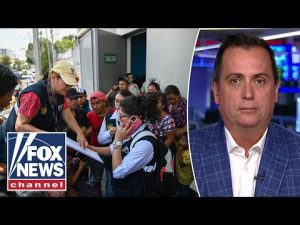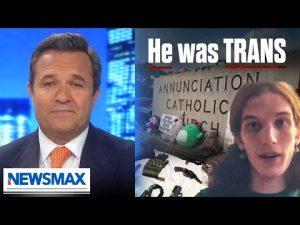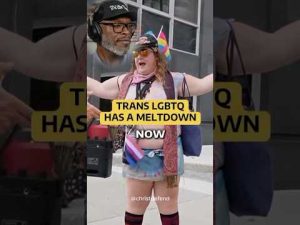In a startling turn of events this past weekend, the city of Chicago experienced a shocking surge in violence, with 54 people shot and at least eight tragically losing their lives. This grim statistic has led many to liken the Windy City to a battlefield, raising questions about safety and security in increasingly dangerous urban environments. In response to this alarming situation, former President Trump is poised to step in with major immigration enforcement operations aimed at restoring law and order.
While the streets of Chicago were experiencing this chaotic turmoil, Chicago Mayor Brandon Johnson took a bold stance by signing an executive order against federal intervention. With an air of defiance, he launched the “Protecting Chicago Initiative,” making it explicit that the Chicago Police Department would not partake in collaborations with federal agents for law enforcement or immigration purposes. His remarks suggested a fierce commitment to protect the city’s residents and uphold the Constitution, while his language hinted at a larger political struggle, painting Trump as a detrimental force in American democracy.
Critics, however, have raised eyebrows at the mayor’s decision. As Chicago grappled with rampant shootings, other cities like Memphis and Detroit are also reeling under skyrocketing crime rates. FBI data from the previous year shows that Memphis and Detroit had the highest crime rates per capita, underscoring an urgent need for law enforcement action. The current trajectory raises an important question: why is the Trump administration focusing its efforts on Chicago and Washington D.C. rather than lending a hand to cities like Memphis, where crime is a much graver issue?
The New York Times recently highlighted this very conundrum, questioning the rationale behind the deployment of National Guard troops to Washington instead of focusing on crime-infested localities. The Times pointed out that Memphis, under Republican Governor Bill Lee, is suffering with a murder rate almost double that of D.C. This drew criticism from those who feel Governor Lee has overlooked the hardships facing his constituents in favor of political gestures. Critics have even labeled him a “rhino” — a term used to describe a Republican in name only, implying a lack of dedication to conservative principles.
In stark contrast, residents in cities like Washington D.C. commend the increased military presence as a welcome addition to their community’s safety. Many have voiced that the aggressive approach has made them feel more secure, leading children to play freely outdoors once again. While Mayor Johnson may be rallying against federal oversight, the desperate calls from Chicago citizens for assistance have been hard to ignore. There is a palpable sense of frustration among the populace with a perceived lack of law enforcement in their neighborhoods, and many believe federal help is essential in curbing the rampant violence.
In the midst of these turbulent times, it seems the residents of cities governed by Democrats have much in common; a shared pain and a yearning for safety. The consistent theme across these areas is that Democratic leadership has been a common denominator in the face of rising crime. President Trump’s intentions to restore order and safety resonate with those citizens who feel abandoned by current local administrations. They want to believe that relief is on the horizon, and they are waiting for strong, decisive leadership to help reclaim their communities.
As the nation watches closely, the path forward for cities like Chicago, Memphis, and Detroit remains uncertain. The people are calling for action, and they are hoping that those in power will finally hear their cries for help, regardless of the emboldened defiance from local officials. For now, President Trump’s proposed measures may be their best shot at regaining a semblance of safety and normalcy in a chaotic world.







